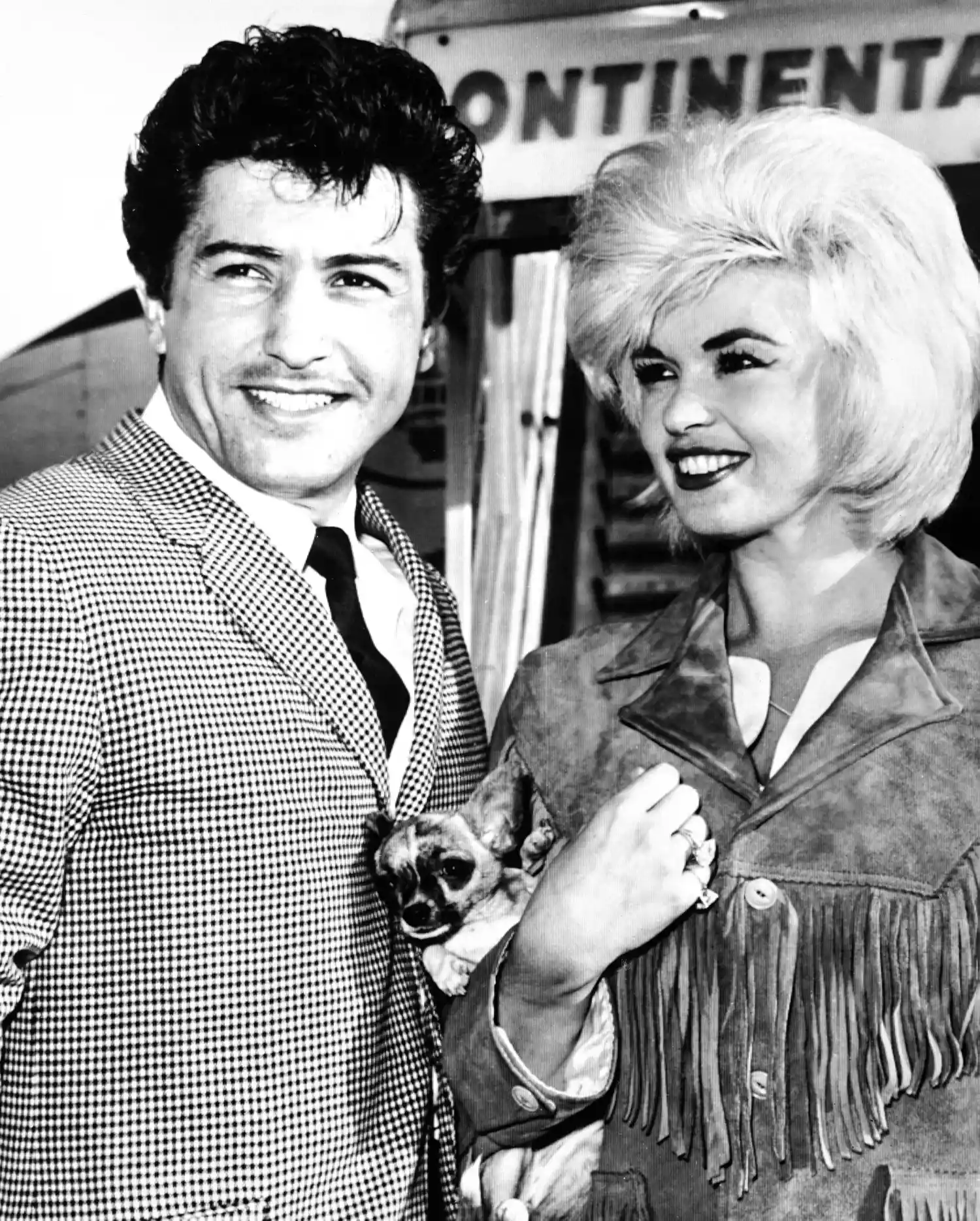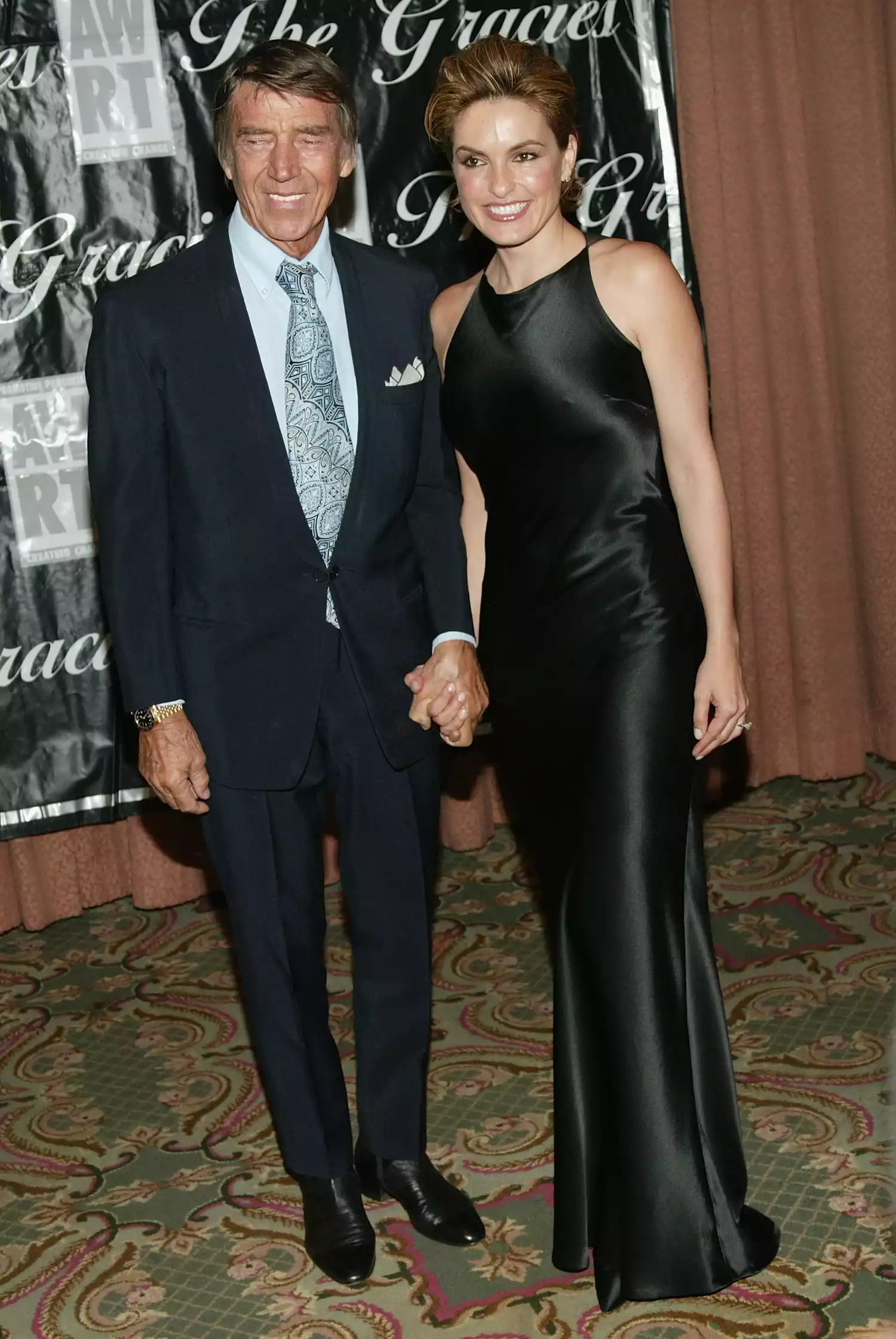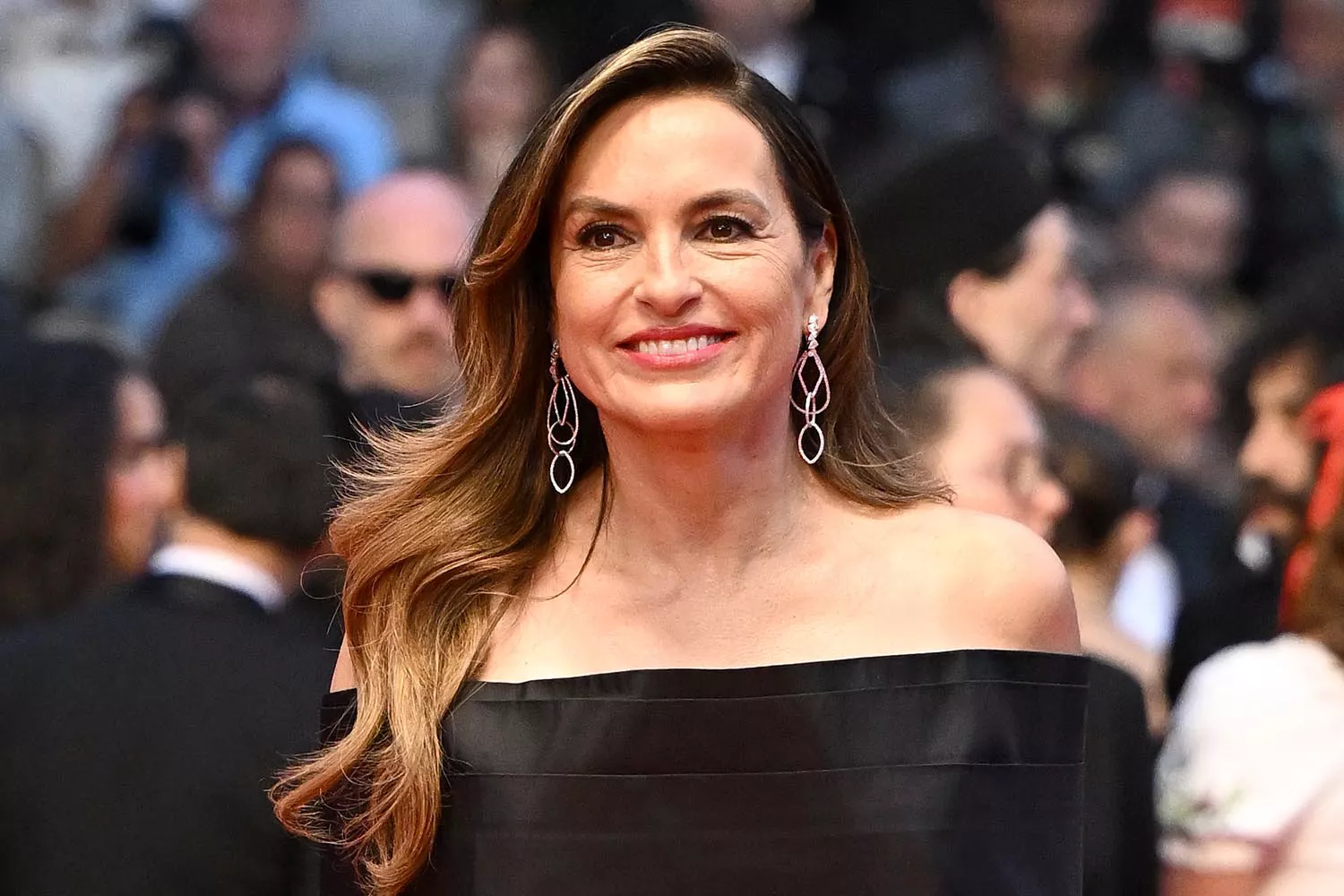For over three decades, Mariska Hargitay carried a secret that reshaped her sense of identity, love, and legacy. In her powerful directorial debut My Mom Jayne, the Law & Order: SVU star opens up for the first time about the moment she discovered that her biological father was not Mickey Hargitay, the man who raised and adored her, but Italian singer and comedian Nelson Sardelli. What unfolds is a deeply personal story of truth, loyalty, and healing — a daughter’s tribute not only to her famous mother, Jayne Mansfield, but also to the man she’ll always call Dad.
A Life Rewritten: The Hidden Chapter of Her Heritage
At 61, Mariska Hargitay is known around the world for her commanding presence on screen, but behind the character of Olivia Benson stood a real-life mystery she had long kept hidden. In My Mom Jayne, a documentary exploring the life and untimely death of her mother, Hollywood icon Jayne Mansfield, Hargitay reveals a stunning truth she learned in her twenties: her biological father is not Mickey Hargitay, as she was raised to believe, but Nelson Sardelli.
“It was like the floor fell out from underneath me,” she shares in the film. The discovery came when someone showed her a photograph of Sardelli—and in an instant, something clicked. “Like my infrastructure dissolved,” she recalled. Though Mickey had always been her rock, her “idol,” the revelation cast her life in a new and confusing light. Her emotional reckoning forms the beating heart of the documentary.

Loyalty, Denial, and a Daughter’s Dilemma
Despite the revelation, Hargitay never publicly questioned her identity—until now. “He was my everything, my idol. He loved me so much, and I knew it,” she said of Mickey Hargitay in a deeply personal interview with Vanity Fair. But even in childhood, she sensed something unspoken. “I also knew something else — I just didn’t know what I knew.”
When she finally confronted Mickey with what she had learned, he denied the claim, and the conversation was never revisited. For Mariska, that silence became sacred. She refused to bring it up again, even as the truth gnawed at her. Out of a profound sense of loyalty to the man who raised her, she shielded the truth until long after his death in 2006.
In 2004, two years before Mickey passed away, she met Sardelli in Atlantic City. “I’ve been waiting 30 years for this moment,” the singer told her, bursting into tears. But Hargitay, channeling her inner Olivia Benson, kept her guard up. “I was like, ‘I don’t want anything. I don’t need anything from you. I have a dad.’”

Healing in the Space Between Two Families
The emotional cost of “living a lie my entire life” was immense, but with time came perspective. Hargitay gradually built a relationship with Sardelli and his daughters, carving out a space for healing while never compromising her loyalty to Mickey. “I’m Mickey Hargitay’s daughter — that is not a lie,” she stated through tears. “This documentary is kind of a love letter to him, because there’s no one that I was closer to on this planet.”
Rather than reject either part of her identity, she found peace in embracing both truths. The man who raised her gave her love, values, and a name. The man who gave her life offered a new understanding of where she came from. In the end, Hargitay didn’t have to choose — she simply had to accept.
Her journey is not only one of discovery, but also of integration. It’s the story of a woman learning to hold space for contradiction, and to love fully—both in spite of and because of life’s complexity.

My Mom Jayne: A Directorial Debut Rooted in Love
My Mom Jayne, which premiered at the Cannes Film Festival and is set to air June 27 on HBO, is more than a documentary about a tragic Hollywood icon. It is a deeply intimate reflection on legacy, loss, and the lifelong search for truth. As a three-year-old, Mariska survived the 1967 car crash that killed her mother, Jayne Mansfield, at just 34. The film revisits that tragedy, while also illuminating the enduring shadow it cast on her life.
But at its core, this project is about family—messy, imperfect, and resilient. Now a mother of three with husband Peter Hermann, two of whom are adopted, Hargitay speaks from a place of profound understanding. “They are my kids,” she says. “Now I understand so much, and, boy, is it sweet.”Through the process of uncovering her own origins, Hargitay has become a more empathetic parent, a more courageous artist, and an even stronger woman. Her camera lens becomes a mirror—one that reflects a child’s pain, a woman’s strength, and a daughter’s undying love.
Mariska Hargitay’s My Mom Jayne is not just a documentary—it is a reckoning. With unflinching honesty and deep emotional nuance, she reclaims her narrative while paying tribute to the people who shaped her life. It’s a story of fractured truth and unwavering love, of grief and gratitude, of secrets that finally find the light. And at its center is a woman who now fully knows where she came from—and stands taller because of it.





